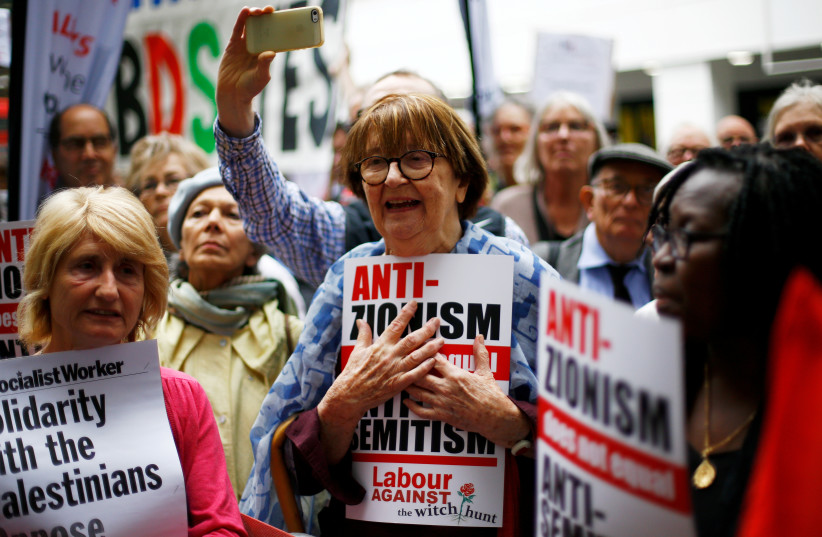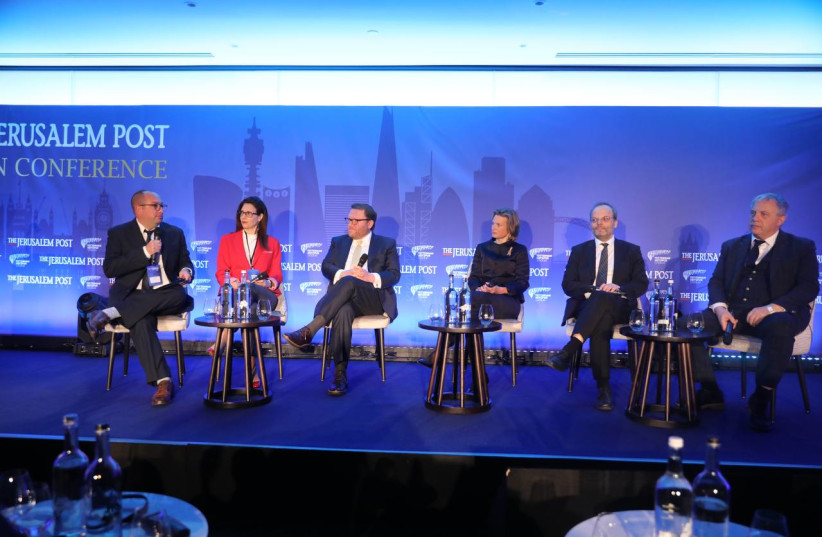The first half of 2022 saw a dramatic decrease in the number of antisemitic incidents recorded in the United Kingdom but also saw antisemitism shift from the Internet to in-person incidents, according to a Community Security Trust (CST) report published Thursday.
According to CST's Antisemitic Incidents Report for January until June of 2022, the total number of recorded incidents dropped from 1,371 during the same period the year prior to 786 this year. The number of recorded incidents in the first half of 2022 is the lowest recorded by the group since 2017, which also saw 786 incidents during the same time period.
“The January to June total has fallen, but that is of limited comfort, because last year was a record high due to the May 2021 war in the Middle East."
CST chief executive Mark Gardner.
CST's figures also showed a trend toward less online antisemitism and more offline anti-Jewish sentiment. The NGO reported that 42% of all recorded antisemitism incidents were online in the first half of 2020, 28% in 2021, and only 19% of all incidents this year.
2022 had "the third-highest number of offline incidents ever recorded in the first half of a year," said CST.
The shift from online to offline hate-motivated actions was attributed by CST to restrictions placed on citizens during the coronavirus pandemic. The UK first began implementing lockdown measures in mid-March of 2020 and the measures lasted until around the same time in 2022. Malicious actors had less opportunity to engage in direct, in-person antisemitism in the previous years — But as Britons return to the street, so does the racial and religious animus that some extremists carry.

Changes in antisemitic tactics
With the post-pandemic shift offline, the tactics of antisemites have changed. CST notes that "Zoombooming" — the hijacking of online video call events and trolling with offensive clothing, images, or audio — has declined. This suggests that the practice was a crime of lack of opportunity, rather than a particularly effective means of harassment.
In contrast, physical assaults increased as a total share of antisemitic incidents in 2022 by over 28% from the previous year — Though there was a drop in total assaults by 20%, and vandalism by 49% from 2021 to 2022. However, 2021 was an outlier in trends, spiking in a number of incidents in the wake of the summer conflict between Gaza and Israel, Operation Guardian of the Walls.
“The January to June total has fallen, but that is of limited comfort, because last year was a record high due to the May 2021 war in the Middle East," said CST chief executive Mark Gardner.
The summer military conflagration saw several high-profile incidents, such as a convoy in which participants shouted slogans such as "f*** the Jews", "kill the Jews" and "rape their daughters." Four men were charged over the incident, but these charges were dropped in Mid-July of 2022.
Changes in antisemitic rhetoric
CST noted changes in the rhetoric used by antisemites over the years, evolving with current events, not only focusing on the Israel-Palestinian conflict or classical antisemitic ideological grievances.

During the pandemic, COVID-19 was blamed on Jews as either engineered by a Jewish cabal or a lie for Jewish elites to assume political control through the lockdowns.
Since the beginning of the Russia-Ukraine War in February 2022, CST has been recording incidents involving antisemitic rhetoric about how Jews are bankrolling the conflict and "pulling the strings on both the Ukrainian and Russian sides." Of note, Ukrainian President Volodymyr Zelensky has been attacked as a "Zionist" and for his Jewish identity.
Without any particular trigger for antisemitism in the UK, such as the prominence of Israel-related news in 2021, CST described the antisemitism figures so far as a return to equilibrium of Jew-hatred after the pandemic.
"Without that conflict [the 2021 Gaza war] or the influence of other factors like the pandemic, these latest figures show that the base level of anti-Jewish hatred remains far too widespread," Gardner warned.
